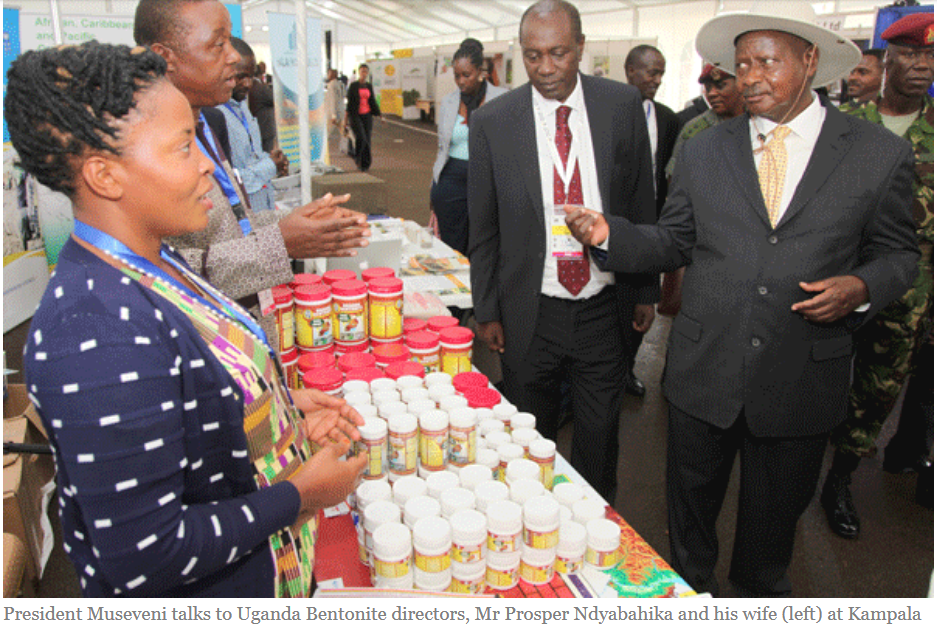As Ugandans gear up to grab the numerous opportunities in the Oil & Gas industry, with preparations towards First Oil intensifying, the Uganda Chamber of Mines and Petroleum (UCMP) in conjunction with the Ministry of Education and Sports will host its first forum solely dedicated to skilling Ugandans and developing local content capacity, on Monday (today), January 22, 2018 and Tuesday, January 23, 2018.
President Yoweri Museveni is expected to make a keynote address at the Sheraton Kampala Hotel event.
Also to grace the forum will be Hon Janet Museveni, First Lady and Minister of Education and Sports, who has recently committed her ministry to championing the training of Ugandans interested in working in the oil industry.
According to Dr Elly Karuhanga, the Chairman of the UCMP, more than $10 billion is expected to be invested in Uganda even before a single barrel of oil is gotten out of the ground, because of an urgent need for support infrastructure including pipelines, a refinery, roads and an airport amongst others.
However, being a nascent industry in Uganda, oil exploitation remains heavily dependent on foreign expertise.
With some of its core functions being to promote, encourage, protect and foster responsible exploitation and service delivery in the extractive sectors, Dr Karuhanga feels the Uganda Chamber of Mines and Petroleum is obliged to use its wide reach to help as many Ugandans as possible to work in the country’s oil and gas industry through avenues like this skilling & local content forum.
“Skilling takes time that it is why it’s called skilling. We need everyone to come and get skilled to manage our oil industry. This assembly will gather all institutions – public and private – that are involved in skills development and training to lay the ground for clear programs that will help Uganda achieve its Local Content aspirations,” said Dr Karuhanga.

According to the 2014 Industrial Baseline Survey (IBS), titled, “A survey to foster opportunities for Ugandans in the Oil and Gas sector”, Uganda’s petroleum sector will generate 100,000 to 150,000, direct and indirect jobs. The survey identified limited information, lack of skills, poor infrastructures, and administrative bureaucracy among others, as some of the barriers that would hamper Ugandans from working in the sector. It also revealed that only 25 industries of the 420 surveyed in Uganda had high potential to supply the sector.
“There is a lack of depth in numbers of very remedial skills along the value chain whether it’s driving, welding or fabricating. These gaps can be filled with skilling and training and a little bit of guidance,” says Mr Patrick Mweheire, Stanbic Bank’s chief executive, and also the vice chairman of the UCMP.
Apart from training individuals, preparing Ugandan companies to compete for contracts within the industry will also be a key subject at the conference.
A law to address the maximization of value-addition and job creation through the use of local expertise, goods and services, businesses and financing in all undertakings in the oil industry (the Local Content Bill) is being developed and will be one of the major topics discussed on Monday and Tuesday.
“We have to figure out how to keep a significant percentage of the oil investments in Uganda. The Chamber will continue to engage the state, through a special committee, to ensure that the upcoming Local Content law addresses all our concerns so that many Ugandans can participate in the sector,” says Dr Karuhanga.
According to the Petroleum Authority of Uganda, 927 entities had been successfully verified and qualified to feature on the 2018 National Supplier Database for Uganda’s oil sector as of December 31, 2017. Of these entities, 561 were companies registered in Uganda while 366 were registered outside the country.
On January 17, 2018, Gulf Interstate Engineering (GIE), a USA based engineering and design company, held a public workshop and presented the Front End Engineering Design (FEED) finding requirements of the East African Crude Oil Pipeline (EACOP) project and discussed the opportunities for local Ugandan businesses and service providers in support of the National Content initiative. This followed a similar workshop organized by the China Offshore Oil Engineering Company (COOEC) two days earlier, which focused on the opportunities available in the development of CNOOC’s Kingfisher Oilfield in the Albertine Graben.











